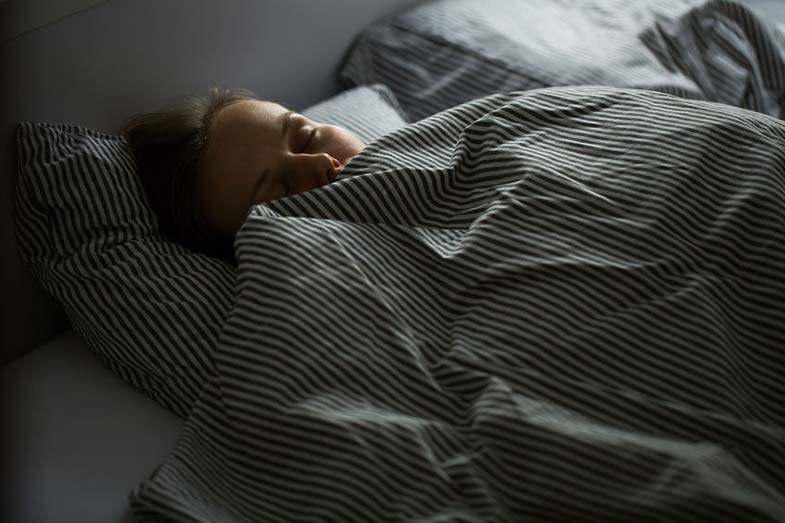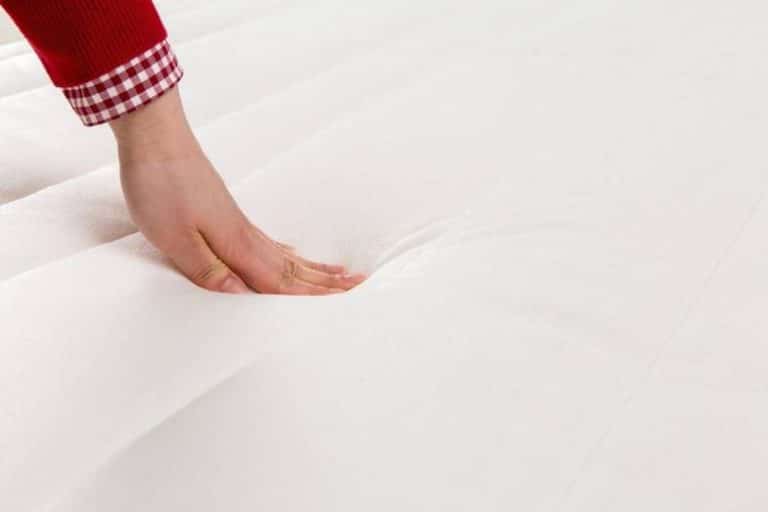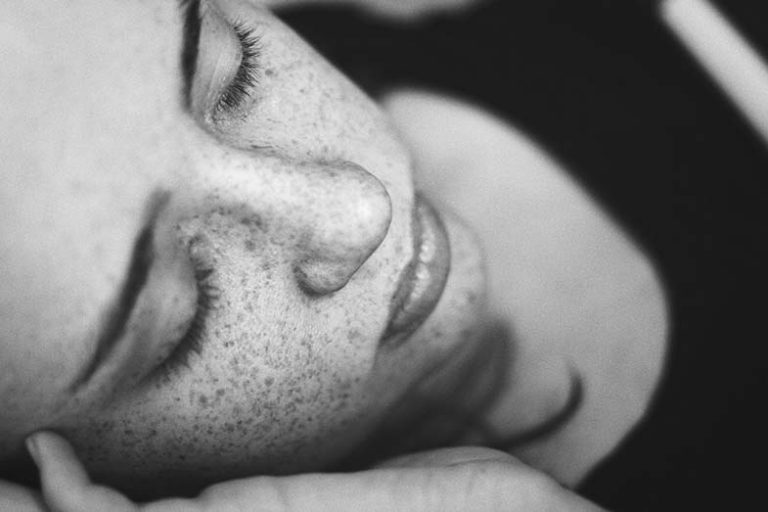What Is the World Record for Sleeping?
Disclosure: We may get commissions for purchases made through links in this post.
If you exclude medical-related issues and conditions, such as being in a coma or having Kleine-Levin Syndrome (a rare disorder that can cause excessive sleep), it is easier to determine a world record for sleeping.
What is the world record for sleeping? There is no official world record for the longest continuous, uninterrupted sleep. There is, however, a world record for the longest hypnotic sleep that lasted eight days by the British hypnotist Peter Powers. The attempt was covered exclusively by the European media.
Peter Powers is one of the most prominent hypnotists in the world, always pushing the boundaries of the hypnotic experience. He’s performed countless hypnosis experiments, including the world’s first online hypnosis.
There are many other sleep records recorded to date including the world record for sleep deprivation. Keep reading to find out more!

What Is the World Record for Not Sleeping?
The record for not sleeping is 11 days and 25 minutes (264.4 hours), held by Randy Gardner, a 17-year-old high school student from San Diego, California. Gardner surpassed the previous record of 260 hours held by Tom Rounds, a DJ from Honolulu.
Gardner’s attempt to break the world record for the longest time a human has gone without sleep was attended by Dr. William C. Dement, a sleep researcher from Stanford University, and Lt. Cmdr. John J. Ross who was responsible for monitoring Gardner’s health.
You can also say that Randy Gardner holds the world record for no sleep with stimulants since he did not use any substance to help keep him awake.
What’s the World Record for Sleeping – Fun Facts
Longest Broadcast Without Sleeping
In 1959, Peter Tripp, a radio presenter, stayed awake for 201 straight hours to raise funds for a children’s foundation. The event was conducted in Times Square, where he sat inside a glass booth, broadcasting his show. Scientists, doctors, and curious onlookers were all there to observe him. During the first two days, Tripp seemed to be active and in good spirits. However, by the third day, he started to hallucinate and curse the people around him. He even took off his shoes because he thought there were spiders in them. During this time, scientists observed that Tripp’s brainwaves appear similar to what would usually occur during the REM sleep cycle, where dreaming generally takes place.
Longest Time to Stay Awake in a Reality TV Show
Clare Southern, a contestant in a British reality TV show ‘Shattered,’ endured 178 hours without sleep competing in challenges and tasks. Ten contestants competed in the show in 2004. Clare holds the world record for no sleep on a reality TV show.
Largest Pajama Party
In 2014, Girlguiding North West in Cheshire organized a pajama party with 2,004 participants. The event earned recognition as the biggest pajama party ever to be held.
Loudest Snore
Kåre Walkert of Sweden is the Guinness World Record for sleeping holder for having the loudest snore, fueled by a rare breathing disorder. The snore reached a dizzying score of 93 decibels (dBA), which was recorded on May 24, 1993, while in the hospital.
From the Daily Mail, there was also Jenny Chapman, 60, and from the UK, who was recorded snoring at 111.6 decibels.
Largest Sleeping Bag
The world’s largest sleeping bag has a length of 20 meters and was manufactured by Snugpak, a Yorkshire-based manufacturer. The sleeping bag was made for the annual sleep-out event for charity, which was sponsored by Centrepoint. However, confirmation from the Guinness Book of World Records is still pending.
World’s Largest Mattress
The largest mattress measures 38 feet wide by 80 feet long. It was created in December 2013 by Jefferson, Georgia.
Most Articles of Clothing Slept In
While camping at Tuolumne Meadows Campground in Yosemite National Park, California, Dan Rollman set a record by sleeping in 13 articles of clothing.
Longest Fake Snore
The record was set by Zach Neal, who let out a fake snore that stretched for 1 minute and 25.71 seconds without stopping.
The Fastest Time for Someone to Fall Asleep on Stage During a Live Performance
Cory Cavin was able to set the record during a fundraising event for the Michael J. Fox Foundation for Parkinson’s Research. Cavin fell asleep on stage within 17 minutes and 50 seconds during a live performance.
Animals That Earned a Spot in the Guinness World Record for Sleeping
- King of Napper
Little brown bats can sleep for 19.9 hours straight, which is more than 80% of a 24-hour period. This has been documented in brown bats that were in captivity.
In second place is the giant armadillo, which can sleep up to 75.4% of the day (that’s 18.1 hours!). - Most Rem Sleep for a Mammal
In a 2008 study, Australia’s platypus recorded about 8 hours of REM sleep in a single setting. - Least Sleep for a Mammal
The African bush elephant holds the record as the mammal that sleeps the least. They sleep for an average of 2 hours per day. - Sleepiest Marsupial
Koalas have earned the record for being the sleepiest bunch among the marsupials. They spend as much as 18 hours per day sleeping. This is due to their high-fiber diet, which is primarily made up of Eucalyptus leaves and takes a lot of energy for efficient digestion and metabolism. - Longest Rodent Hibernation
The Arctic ground squirrel is well-acclimated to the harsh climate of Alaska and Canada by undergoing up to 9 months in hibernation. During hibernation, their body temperatures drop to -2.9°C (26°F), the lowest body temperature recorded in a mammal. They can survive with a very low body temperature by “supercooling” their blood. Their bodies can get rid of tiny particles in their body fluids in which ice crystals could develop around before they start their long winter sleep. While hibernating, their bodies will automatically shiver and shake for several hours every few weeks. This is a physiological mechanism of the body to increase its temperature. All this takes place while the squirrel is sleeping.
Animals That Hardly Ever Sleep
- Giraffes
Because sleeping makes them extremely vulnerable to predators, giraffes have evolved to take very quick naps, as short as 5 minutes, throughout the day. In fact, they can manage 30 minutes of sleep a day. Since getting up and laying down could take time, giraffes learn to sleep standing up and arching their necks with their heads on their rumps. At other times, they just nod off for a quick power nap. - Dolphins
Dolphins undergo the so-called ‘unihemispheric’ sleep, which means that one brain hemisphere and the opposite eye, controlled by the hemisphere, shut down. Thus, this is also called as ‘one-sided sleep’ because the dolphins are half asleep, making it possible for them to take a nap while swimming. The other brain hemisphere and an eye remain active. This is a protective mechanism to keep alert for potential predators. Dolphins may also sleep while floating, making them appear like logs, which is why this type of sleep is called ‘logging.’ Whales, porpoises, orcas, and other marine mammals are capable of undergoing ‘unihemispheric’ sleep, where they can sleep and be awake all at once. - Elephants
Elephants can do well on 3-4 hours of quick naps throughout the day. Generally, they sleep standing or leaning on trees. Sometimes, they lay down on their sides, but they can do it for less than 30 minutes to protect their internal organs from being crushed by their own body weight. - Bullfrogs
Bullfrogs are known to survive for several months without sleeping. Even when their eyes are shut during rest, they are alert for any signs of potential predators. Studies have shown that even while resting, bullfrogs still manifest a response to stimuli that causes pain. There are also changes in their respiratory patterns. It is only during winter hibernation when they go into a deep sleep. - Alpine Swifts
These birds are known to travel from Switzerland to West Africa continuously for 200 days. They never stop to rest at all, but research studies were able to observe periods of slowing down while on a flight when Alpine Swifts don’t flap as much. - Walruses
Walruses can sleep just about anywhere and in any position. But they can also stay awake for hours without sleep. Studies have recorded walruses swimming and staying awake without even the quickest naps for 84 hours. - Orca Calves and Baby Dolphins
What’s unique about the calves of killer whales and baby dolphins is that the first few months after birth are spent with absolutely no sleep. They continue to swim around even when adults are sleeping. There are several reasons to explain this unique behavior. Aside from being alert for potential predators, the constant moving around keeps their bodies warm until they’re older and have some more blubber.
Conclusion – What Is the World Record for Sleeping?
To date, no official world record for sleeping has been recorded. There are too many factors and variables to take into consideration, such as being in a coma or having Kleine-Levin Syndrome. There is, though, the longest hypnotic sleep that lasted eight days, which was done by the British hypnotist Peter Powers.






